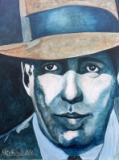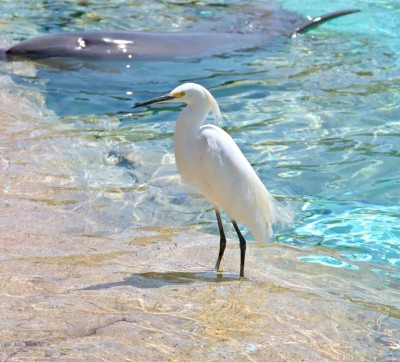Experts in Medicine
There is a well-documented trend of growth among black or African American female medical school graduates. Since 1986, the proportion of female graduates has increased 53%, and the proportion of male graduates has declined 39%.

Dr. Neil deGrasse Tyson is the Frederick P. Rose Director of the Hayden Planetarium at the American Museum of Natural History and Visiting Research Scientist and Lecturer at Princeton University. Dr. Tyson is often known as ‘The Man Who Demoted Pluto.’
Neil deGrasse Tyson was born October 5, 1958 in New York City as the second of three children. His father, Cyril deGrasse Tyson, was a sociologist and human resource commissioner for New York City mayor John Lindsay. His mother, Sunchita Feliciano Tyson, was a gerontologist. In 1972 Tyson attended the Bronx High School of Science where he captained the wrestling team and was editor-in-chief of the school's Physical Science Journal. Neil Tyson had an abiding interest in astronomy from a young age, obsessively studying it in his teens, and eventually even gaining some fame in the astronomy community by giving lectures on the subject at the young age of 15.
Already viewed as a protégé in science, Neil de Grasse Tyson was courted by Carl Sagan at Cornell, while deciding his college options. Eventually Tyson chose to attend Harvard over Cornell, where he majored in physics. He was a member of the crew team in his freshman year, but returned to wrestling, lettering in his senior year.
Neil deGrasse Tyson earned his B.A. degree in physics from Harvard in 1980 and began his graduate work at the University of Texas at Austin, where he earned his M.A. degree in Astronomy in 1983. In addition to wrestling and rowing in college, he was also active in dancing in styles including jazz, ballet, Afro-Caribbean, and Latin Ballroom. In 1985, Neil deGrasse Tyson won a gold medal with the University of Texas dance team at a national tournament in the International Latin Ballroom style. He began a doctoral program at the University of Texas, but transferred in 1988 to Columbia University after the University of Texas dissolved his committee. In 1991, Dr. Tyson earned a Ph.D. degree in astrophysics.
Dr. Neil deGrasse Tyson was appointed the Frederick P. Rose Director of the Hayden Planetarium in 1995. His research interests include star formation, dwarf galaxies, and the structure of our Milky Way. Tyson has authored nine books, including his latest, The Pluto Files: The Rise and Fall of America's Favorite Planet, chronicling his experience at the center of the controversy over Pluto's planetary status.
Tyson's professional research interests are broad, but include star formation, exploding stars, dwarf galaxies, and the structure of our Milky Way. Tyson obtains his data from the Hubble Space Telescope, as well as from telescopes in California, New Mexico, Arizona, and in the Andes Mountains of Chile.
Dr. Neil deGrasse Tyson has been the acclaimed host of NOVA scienceNOW since the launch of its second season. "NOVA scienceNOW is the only show on television that presents cutting-edge science stories in this exciting and fresh magazine format, and I relish the challenge of making science accessible and relevant to many different audiences," said Tyson. One of the world's most popular lecturers on astronomy, Tyson is a familiar face to NOVA audiences, having hosted the miniseries Origins on PBS in 2004, and having been a featured scientist in prior episodes of NOVA scienceNOW. Tyson is also a frequent guest on The Daily Show and The Colbert Report, where Stephen Colbert gave Tyson the title BFF (Best Friend Physicist) after his fifth appearance on the show.
In 2001, Tyson was appointed by President Bush to serve on a 12-member commission that studied the Future of the US Aerospace Industry. The final report was published in 2002 and contained recommendations for Congress and for the major agencies of the government that would promote a thriving future of transportation, space exploration, and national security.
In 2004, Tyson was once again appointed by President Bush to serve on a 9-member commission on the Implementation of the United States Space Exploration Policy, dubbed the Moon, Mars, and Beyond commission. This group navigated a path by which the new space vision can become a successful part of the American agenda. And in 2006, the head of NASA appointed Tyson to serve on its prestigious Advisory Council, which will help guide NASA through its perennial need to fit its ambitious vision into its restricted budget.
Tyson lives in New York City with his wife and two children. Tyson lived next to the World Trade Center and was an eyewitness to the September 11, 2001 attacks. He wrote a widely circulated letter on what he saw.
Dr. Tyson’s contributions to the public appreciation of the cosmos were recently recognized by the International Astronomical Union in their official naming of asteroid "13123 Tyson."
Don't miss a single page. Find everything you need on our complete sitemap directory.
Listen or read the top speeches from African Americans. Read more
Read about the great African Americans who fought in wars. Read more
African Americans invented many of the things we use today. Read more
Thin jazz, think art, think of great actors and find them here. Read more
Follow the history of Black Americans from slave ships to the presidency. Read more
Olympic winners, MVPS of every sport, and people who broke the color barrier. Read more
These men and women risked and sometimes lost their life to fight for the cause. Read more
Meet the people who worked to change the system from the inside. Read more

Visit my RedBubble page and use Michael Arnold Art to create greeting cards, T-shirts, mugs, and more.

The variety and impressive numbers of mammals, birds and marine wildlife in Alaska draw visitors from all over the world. For some travelers, Alaska is wilderness, at least compared to what they may know from back home. The pristine wilderness of Alaska is, perhaps, the last vestige of thriving populations of North American wildlife. Where else can you see polar bears, bald eagles, blue and humpbacked whales, gray wolves, grizzly bears, orcas, lynx, moose, and hundreds of other rare and endangered species in their original and undisturbed natural habitats?

Enjoy our website filled with original signed acrylic paintings by award winning Artist Michael Arnold. Located in Citrus County Florida, Michael Arnold is a the editor at the Citrus County Chronicle. When he's not busy being an editor, he is an avid artist who enjoys painting in a variety of styles. We hope you take the time to click on each image to see a larger view and to learn what the artist, Michael Arnold has to say about his paintings.

As dog owners and people who care deeply for animals and wildlife, we wanted our Dog Encyclopedia to be a website that could empower pet owners to create the most positive, loving environment for their dogs. Dog Encyclopedia realizes that owning a dog is like adding a new member to your family.

Floridian Nature has everything your are looking for in Florida nature. The wildlife of Florida is rich and varied, yet most of us are familiar with only a dozen or so species: the "well known endangered species such as manatees and panthers; those, like raccoons and squirrels, that have adapted to urban environments; the frightening alligators and black bears; and those like the armadillo who can't seem to cross the road. Yet they are just a few of the many animal species found in Florida.
